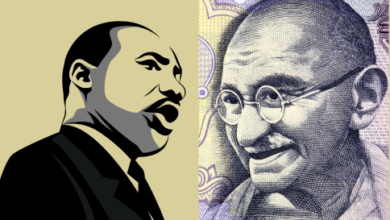Excerpt from: Chapter in: Wilkins, D. (Ed.) (2014). The New Dawn (e-book). Auckland, New Zealand: New Zealand The First Light.
Overview
The evolution of human civilization to this point has seen impressive advances in the development of technologies that enable us to interact effectively with our external world. However, as a whole, our relationship with our internal emotional experience has remained comparatively immature. This next crucial phase of humanity’s evolution will invite a shift in focus inward—to develop new internal strategies by which we can learn to regulate, modulate, and direct the vast and largely untapped resource that is our emotional energy. To build this new relationship with our emotional experience will require a source of intelligence beyond the familiar but limited awareness of the mind. Heart Intelligence embraces an integrated awareness that includes input from the body, mind, emotions, and spirit—the larger aspect of our consciousness that connects us to an energetic domain beyond space-time constraints. Practices that engage the heart by activating states sourced in Love, in individuals and in community, can help cultivate Heart Intelligence and generate new levels of self-awareness and emotional mastery. The collective maturation of our ability to intentionally track, focus, direct, and modulate our emotional energy will naturally facilitate the development of humanity’s intuitive and co-creative capacities. This heart-directed evolution of consciousness will transform our relationship to ourselves, our fellow beings, and our Planet, leading to greater levels of self-responsibility, cooperation, compassion, connectedness, and Love.
The more, as an irresistible effect of technical progress and reflection, mankind becomes conscious of the immensity, and even more the organicity, of the world around it, the more the necessity for a soul makes itself felt: for a soul that is capable of maintaining and directing the vast process of planetization in which we are involved. The more, too, it becomes clear that the only form of spirit capable of producing this soul is that . . . sustaining and impelling the universe in the direction of progressively better forms of arrangement: . . . the spirit of greater love and greater consciousness.
—Pierre Teilhard de Chardin (1972)
Activation of Energy
A Focal Shift
Over the course of the last millennium, the evolution of the human race on the Planet has undergone a momentous acceleration. Largely, this development has concerned itself with knowledge, ideas, and technologies that have revolutionized the way in which we, as individuals and as a species, interact with the external landscapes of our world. The rapid accumulation of knowledge that characterized the scientific revolution and the advent of groundbreaking new technologies that emerged from the industrial revolution have allowed us to exert more control over our external environment than was ever conceivable before. Now adding to these developments the exponentially burgeoning capacity to store, process, and access information that are a product of the current information revolution in which we live, the bounds of our collective technological potential are indeed difficult to place. Even as few as a hundred years ago —let alone a thousand—it would have been virtually impossible to envision the current reality we have built for ourselves on the foundation of these advances.
Yet we may reflect on exactly where this dexterous ability to manipulate our outer world has brought us as a species. Notwithstanding the countless benefits offered to society by modern science and medicine; ingenious developments in mechanical technologies that lift the burden of once-grueling manual work; and the information processing power, convenience, and digital interconnectivity furnished by the computing industry, we are left with an unshakable sense that something is missing. There is a vast emptiness within and among us that remains unfilled by these externally oriented advances and all that they have brought us. And, with unfortunate irony, even the very ends for which these developments were supposedly created—improved health and healing, enriched quality of life, increased connectedness with one another and our Planet—remain, all too frequently, sadly unfulfilled.
The source of this growing sense of incompleteness is a seemingly fundamental imbalance in the direction in which humanity’s evolution has thus far been focused. To illustrate, we may consider the following question: Over the time period that we have built towering cities, transported ourselves around the globe and even into space and back, looked inside the cell and the very subatomic particles that comprise it, and erected networks of super-powerful computers that function at lightning speed—in this same time, how much have we done as a species to bring about a corresponding development in the world in which we all live every moment of our lives—our internal world—the landscape of our emotional experience?
It is an awkward truth to acknowledge that while most of us now take for granted the ease and consistency with which we can manipulate aspects of our outer world with a simple turn of a key or push of a button, human civilization as a whole still lives for a large part at the mercy of unmanaged (and, in our perception, unmanageable) emotional stress; automatic, conditioned judgments and reactions that we accept as “self”; and energy-draining feelings, thoughts and behavioral patterns that are primarily sourced in ego-driven states of fear. Indeed, fear-based patterns of greed, judgment, intolerance, and blame dominate and underlie much of the societal chaos we experience in our world. And at the individual level, “stress,” and the emotional and behavioral responses it engenders, run our lives to a greater degree than most of us are even aware of, leading to diminished quality of life, strained relationships, burnout, physical illness, and, in some cases, even precipitating death.
Certainly, we also experience uplifting feelings that enrich our lives—moments of love, joy, gratitude, compassion, connection and communion with others. But, for society at large, we may ponder how many of these internal feeling experiences remain primarily dependent upon fleeting arrangements of external circumstances outside our full control—just as relief from uncomfortable feelings for many people also appears mainly at the mercy of some change occurring outside themselves. And we must also ask to what degree, as a society, we are truly conscious of the subtle, nuanced emotional energy dynamics that govern our perceptions, motivations, and interactions—for it is only in the light of such consciousness that self-willed change is possible. In sum, taking stock of the mass level of emotional awareness and empowerment the human race currently embodies, we find that the large part of the population possesses only a surface-level awareness and understanding of their emotional nature, and only a very limited ability to consciously modulate their emotional world.
Quite ironically, while we appear endlessly driven to continue to invent new and improved technologies to manipulate our external reality, we have collectively come to accept this largely disempowered and unconscious state relative to our internal emotional reality as natural and a “given.” We barely give it second thought as we move through our lives, regarding it simply as part of the “human condition.” But what if this so-called “human condition”—our collective emotional landscape and our relationship to it—is not static at all, but marks the locus for the next huge step forward in the evolution of our species? In a startlingly short space of time humanity has lived through the scientific revolution, the industrial revolution, and now the information revolution. But we cannot move forward in a true wholeness sense without a fundamental shift in the focus of our species’ development. A focal shift to the inner realms heralds the new revolution that is now in order. The next revolution is an emotional revolution; and it has already begun.





